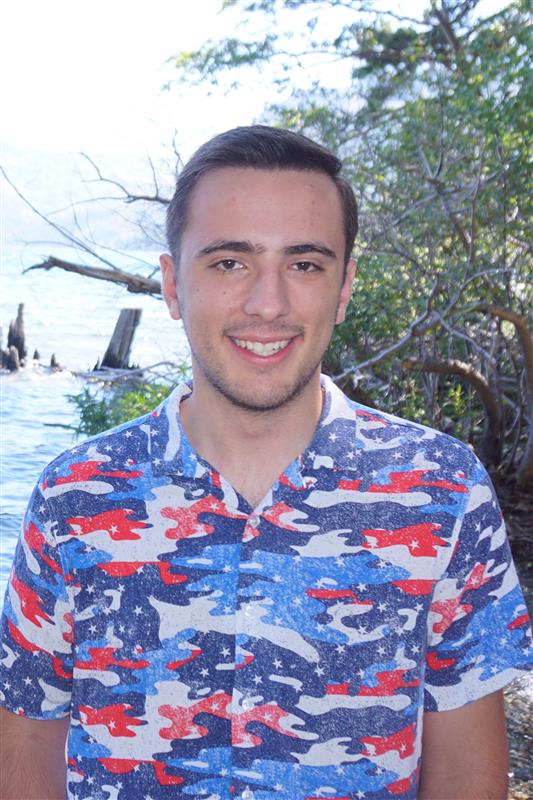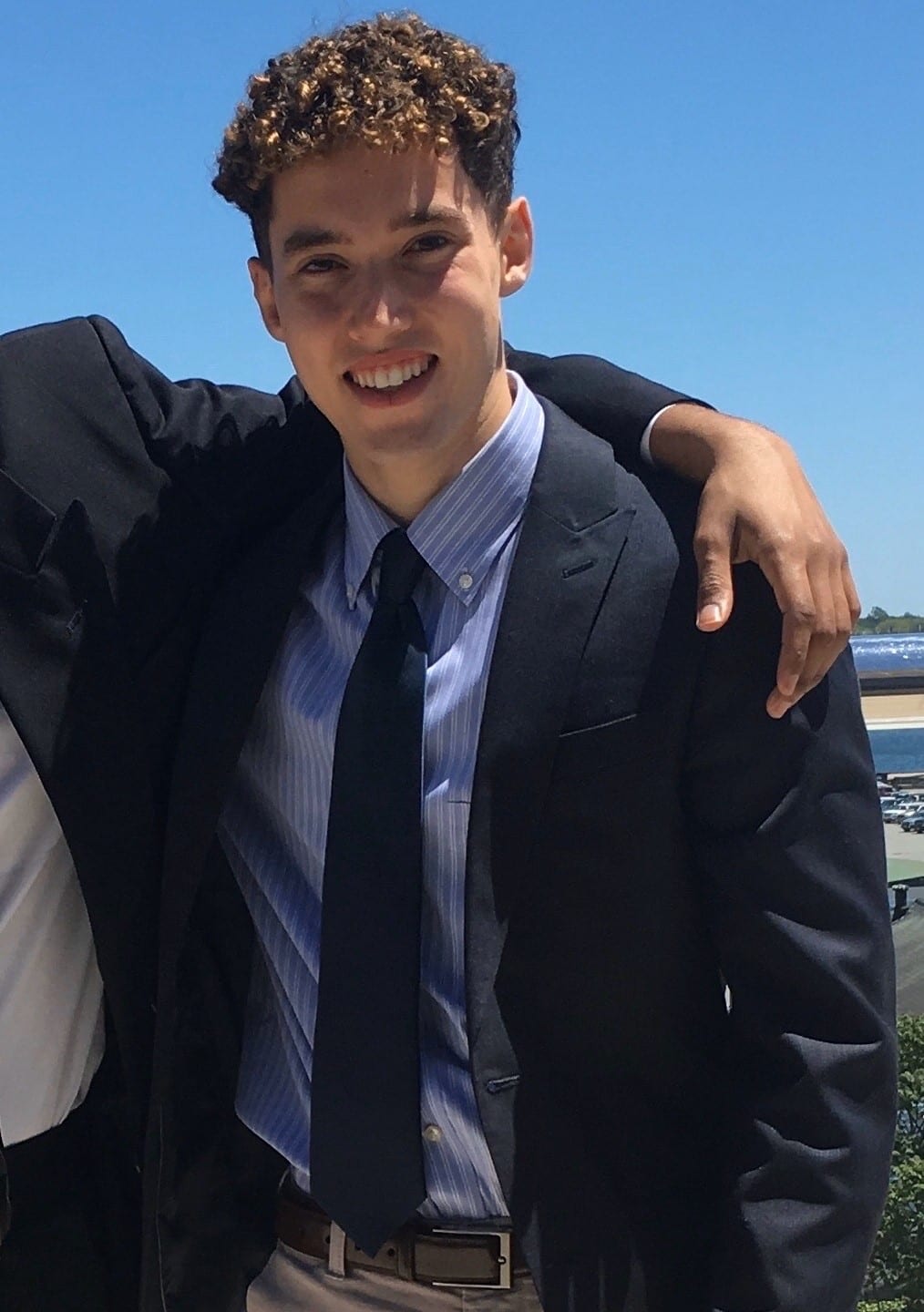How campuses have responded to the COVID-19 pandemic has significantly impacted the lives of college students, and their higher ed trajectories. In the middle of the spring 2020 semester, the majority of students were forced to leave campus and relocate to safer, off-campus housing, such as moving in with family, while they grappled with the rapid shift from in-person to remote learning. Internship and job opportunities rescinded, student abroad programs cut short and cancelled, students and faculty alike learning how to best utilize Zoom, and uncertainty regarding school reopening plans served as the backdrop for the chaotic months that followed. Students were not prepared for the sudden and rapid changes that the pandemic brought to their college lifestyles and routines, and their health and wellbeing was — and continues to be — majorly affected.
The American College Health Association and the Healthy Minds Network, two research groups that collect college wellbeing information from students annually, combined their data for a better picture of the pandemic’s impact on student wellbeing and found that, compared to fall 2019, a higher proportion of students reported that their mental health had a negative impact on their academic work. Additionally, more students reported symptoms indicative of depression during spring 2020 following campus closures than in the fall of 2019.
Despite the widespread disruption and challenges, each student has had a unique experience during the coronavirus due to personal circumstances, priorities, and available resources and support. The Mary Christie Foundation connected with four college students to learn more about their experiences in the spring and summer, their plans for this fall and the academic year ahead, and how they’re coping with it all.
Pia Tiimob is a sophomore double major in English and journalism at Lehigh University and comes from Gaithersburg, MD. Pia moved home to Gaithersburg when her campus closed this spring and decided to continue her remote classes from home this fall when Lehigh announced only freshmen could live on campus. At Lehigh, Pia is involved in the African Student Association and tutors local elementary and middle school students. She has one older sister who currently attends Washington University in St. Louis and lives on campus this fall, as well as a younger brother and a younger sister who live at home.
Sebastian Steel is a junior economics and international relations double major at Lehigh University and is from Menlo Park, CA. An only child, he moved home to live with his mother in California when his campus closed in March. Sebastian returned east to Bethlehem, PA this fall to continue his remote studies in off-campus housing near Lehigh with friends. He is part Hispanic and a member of the European Student Union, the Lehigh Drivers Club, and the Lehigh Outing Club.
Kelton Souza is a sophomore communications major at UMass Amherst from New Bedford, MA. He has a twin sister in New Bedford with whom he has been living since his campus closed. He had hoped to find work that would enable him to pay for rent living in an off-campus fraternity house in Amherst. Kelton secured two jobs but ultimately decided to pursue his studies remotely from New Bedford this semester. He is Portuguese, plays club tennis at UMass Amherst, and took up drawing since stay-at-home orders went into effect in March. Campus closed while he was in the middle of pledging the Alpha Epsilon Pi fraternity, and after completing his required assignments remotely, he was initiated at the end of the summer.
Kathryn Bartlett is a 2020 high school graduate, lives in Westfield, NJ and decided mid-summer to take a gap year for the 2020-2021 academic year before beginning her undergraduate studies at Emory University in fall 2021. Kathryn does not know anyone in her community who has taken a gap year between high school and college. During her year off, Kathryn plans to live at home and tutor local school children, offering her services to low-income families for free. She also hopes to write for her local newspaper. Kathryn enjoys hiking and horseback riding, was involved in her high school’s track team and newspaper and literary arts magazine, and is interested in studying the humanities and social sciences as well as continuing her work in journalism.
The pandemic interrupted the college experiences of Pia, Sebastian, Kelton, and Kathryn, yet each student has experienced, learned, connected, and coped in their own ways.
FALL 2020 PLANS
Fall logistics presented a challenge across the board as the students awaited news this summer from their respective institutions regarding the upcoming semester and then dealt with late summer changes to the plans. This involved critical factors such as in-person vs. remote classes, housing, and dining. All four students had set housing plans with roommates when Emory, Lehigh, and UMass announced that only select populations of the campus community were invited back in-person.
Kathryn was invited to campus as a freshman at Emory, though was told that students could only live in single rooms, all activities and classes were expected to be virtual, and all meals would be grab-and-go style to limit infection spread. She decided to defer for a year because she felt that having a fraction of the full Emory population on campus, in addition to the new protocols, would diminish the college experience. Feeling the loss of anticipated traditions for high school seniors, such as prom, which was cancelled, and a traditional graduation, which was replaced by the graduating class’ ceremony being live-streamed to friends and family, Kathryn did not want to start a new chapter of her life and miss out on the full college experience as well.
“I never really got to say goodbye to my teachers or the people I may not have been close to but hung out with in school,” she shared. “So it just kind of feels like I almost never finished high school and that chapter of my life is kind of incomplete. It was definitely a disappointment. So unexpected, too…after missing a lot of my senior year and a lot of things I was looking forward to as a senior, I didn’t want to miss out on another important part of my life.”

Sebastian Steel
Kelton, as a sophomore, was among the majority of UMass Amherst students not allowed to live on campus this fall, but planned to return to Amherst to live with friends and classmates in an effort to recreate as much of the college experience as he could while learning remotely. “I love my sister and everything, but she has a full time job, 7:00 to 4:00, so I’m stuck at home all day, every day throughout the summer, and it definitely starts to get to you. So that’s why I’m trying to go back to Amherst…” When we spoke to Kelton in August, he hoped to get a job with his previous employer at the New Bedford Whaling Museum so that he could pay for living in the Alpha Epsilon Pi frat house, as his financial aid only covers on-campus housing.
Sebastian wanted to return to the Eastern time zone so he did not have to wake up three hours earlier for classes from home in California. Similar to Kelton, Sebastian sought off-campus housing with college friends. He was able to secure housing in Bethlehem, PA amidst the high demand due to Lehigh offering on-campus housing only to freshmen and those in need.
Pia also had on-campus housing plans, which she committed to earlier in the summer. She chose a housing option that included a dining hall in the same building in order to minimize outside interactions. When Lehigh made its announcement, she and her roommate opted to remain home and complete their studies online as they had in the spring. “…I also feel like it’s not safe right now…I wouldn’t want to be part of an outbreak that might occur. So, I feel like it’s kind of for the best…I kind of am jealous of people that get to see their friends, but they’re also like putting everyone else at risk in a way…” Pia said that while she was disappointed to learn that residential living was not an option, she was not surprised.
RESPONSE TO UNIVERSITY’S REOPENING PLANS
A common theme among the four students was a desire for more transparent communication from their respective universities regarding the fall semester. They said they felt like the schools were trying to keep everyone’s hopes up for as long as possible for a “normal,” or close to normal, semester with the entire student body being back on campus and in the classroom.
In the spring, Kathryn’s mother, who works at Rutgers University, predicted that colleges and universities would promise in-person, residential education, but would be unable to deliver, which turned out to be an accurate prediction for many institutions of higher ed. Finances loom over campus planning, as institutions experience high input and high output of money over the course of the academic year and tuition deadline cycles.
Sebastian said he is “Taking a very, maybe cynical view that the goal is not education and safety, it’s to maximize revenue and make sure that the school stays afloat during all of this…they’re losing a whole lot of money between the tuition discount, not having people pay room and board… So, I thought they were going to go back to campus because the revenue loss would have been too great and this was just going to be a financial decision and not a health and safety decision…” Like many, Sebastian was disappointed by his school’s decision not to welcome students back this fall, but he also was surprised by the school’s decision from a business lens.

Kathryn Bartlett
ANTICIPATING THE CONTINUATION OF REMOTE LEARNING
All four students said they believed their respective schools did the best they could this past spring given the necessary and quick change to remote learning, but they also hope that their schools will reflect on what worked and what didn’t and implement changes for the fall semester and beyond. In response to the unexpected disruptions and the rapid shift to online learning this past spring, Pia, Sebastian, Kathryn, and Kelton, like many of their peers, worked to adjust to their new circumstances, which were not always conducive to studying.
Pia mentioned that she had been studying in her room during the spring semester and found it hard to sleep in the same space. For the fall, her mother helped set up a study space in the sunroom so Pia can have separate work and rest places. Additionally, Pia mentioned that going to the Lehigh library to study or rewarding herself for doing work by making plans with friends on the weekends had helped her manage her work while at Lehigh, and that she struggled not having this structure when campus closed.
Kelton, Sebastian, and Pia all remarked that online classes are not comparable to in-person. Kelton found remote classes less engaging as a student and struggled to stay as focused and motivated, especially as he found himself mostly doing work from bed. “Obviously, in-person classes are better…it’s a different environment and you’re forced to sit there and learn. So, I do get distracted sometimes, but I think I’m getting better at it, hopefully.”
The students said that this fall, they all hope to build upon the skills for remote studying that they were forced to hone this past spring. Pia said she was concerned about enrolling in a course with a bad professor. “…they’re weirdly 10 times worse [and] inaccessible if they’re not good at responding to their emails…office hours will obviously not really be an option in the traditional sense, which can be really bad for some classes.” However, Pia also noted that a number of professors extended themselves to support students this past spring, such as having six hours of drop-in office hours on Zoom for students.
Sebastian spoke to the class experience, saying “…in one of my classes last semester, the professor didn’t really know how to use technology.….And then, some professors went very lazy…One class I had to learn from PowerPoints and then we would have office hours twice a week to ask any questions. I mean, that is so not worth it…not the same quality of education.” Pia and Sebastian said they hope that the professors, especially those less tech savvy, had sufficient time and instruction from the University this summer to formally learn remote teaching pedagogy and methods.
Kathryn felt that a fully remote learning experience, had she made the decision to move to Atlanta, was not the right path for her. But at the same time, she feared that taking a year off between college and high school might interfere with her academic focus and concentration. For this reason, she sought out an online Black Lives Matter course offered by Rutgers University to continue to be academically engaged while she explores other pursuits during her gap year.
ATTENDING TO THEIR WELL-BEING
Prioritizing well-being, both physical and mental, has been and continues to be a primary challenge during the pandemic. The pandemic has made connecting with others even more difficult, as all four students noted, saying that remote or screen time with a friend, a professor, or a loved one does not spur the same sense of human connectedness as sharing an in-person experience with them.
College is a time of intense immersion in both academics and socializing. It can be hard to find a space to be alone, even in one’s own bedroom. Interactions with other people is a common denominator across many aspects of a college experience — whether it’s roommates, hallmates, classmates, friends, or teammates. When campuses closed and learning went from in-person to remote, the social aspect of the college experience dramatically changed. Students were forced to adjust to interact with others mostly through phone calls, texting, video calls, and social media.

Kelton Souza
Kelton and Pia spoke to the positive elements of social media that allowed them to stay in touch with college friends dispersed across various locations as well as local friends whom they did not see during stay-at-home orders. At the same time, they felt that social media could be a source of negative energy. Pia said it was frustrating to see friends and acquaintances breaking stay-at-home orders and safety rules or seemingly on vacation while she and her family followed the rules. “People are like paying a lot more attention to people’s social media profiles than ever before, which is probably not a good thing.” Although some aspects of life are slow-moving these days, there is plenty of conversation on social media, be it about the pandemic, the economy, racial violence and disparity, protests, and the upcoming election, to name a few.
Kathryn, Sebastian, and Pia all mentioned that once it warmed up around May, they started spending time with friends outdoors, making s’mores together around a bonfire for example, which made them feel better. But Kathryn said that by the end of summer, most friends left for college when the academic year began, which sometimes causes her to reconsider her decision to take a gap year. “…it does kind of make me have a few regrets about the gap year, just as people are leaving and I’m seeing everyone get excited in their dorms. It does kind of make me feel a little left behind…”
Pia said she relied on her friends from home and from college for support during stay-at-home orders. Additionally, the biweekly African Student Association meetings and first-year academic support group meetings held on Zoom helped her feel connected to her Lehigh communities.
Kelton and Sebastian both said they turned to the family member they live with for support. Sebastian’s mother is a psychiatrist and Sebastian found her informed support helpful. “Most of it has just been supportive and she’ll say, ‘You’re not alone in this entire situation, and you’ve got to realize that this isn’t just happening to you, and I’m just so sorry…I know it sucks, just try to maintain contact with your friends…’” He said he had been writing down things he is looking forward to in the next few months as a coping mechanism since the annual international trip he takes with his mother over the summer– this year to Southeast Asia– was canceled. Sebastian said next year, he and his mother plan to travel to an area in Africa.
The students all reported changes in physical activity, along with their “normal” routine. Many have found that they are less active due to no or reduced commuting, fewer events out of the house, gym closures, and canceled sports seasons. Sebastian mentioned that his workout routine got “worse, then better for a month and a half, then worse” as everything initially shut down at the start of the pandemic, then gyms temporarily re-opened in his county, only to be shut down once again. Kelton agreed that it’s more difficult to motivate himself to workout at home and wearing a mask at a gym is not appealing.
Kathryn, on the other hand, found that her shift in routine allowed her more time to dedicate to being physically active. She loves to hike but rarely had the time during a usual school year to go, and took advantage of her flexible schedule this spring to head to the hills. Additionally, she tried out her parents’ spin bike during the colder months and found that she really enjoyed it.
Like Kathryn, Kelton took up a new hobby. He began drawing, which he took up with the help of Bob Ross videos.
Sebastian, Kelton, Kathryn, and Pia were forthcoming reporters on many of the dynamics that students everywhere are likely experiencing — fears, uncertainties, and hardships, along with stories of coping and adapting. Kelton said, “At this point, you can only hope that it gets better and that’s what you’ve got to work towards.”



